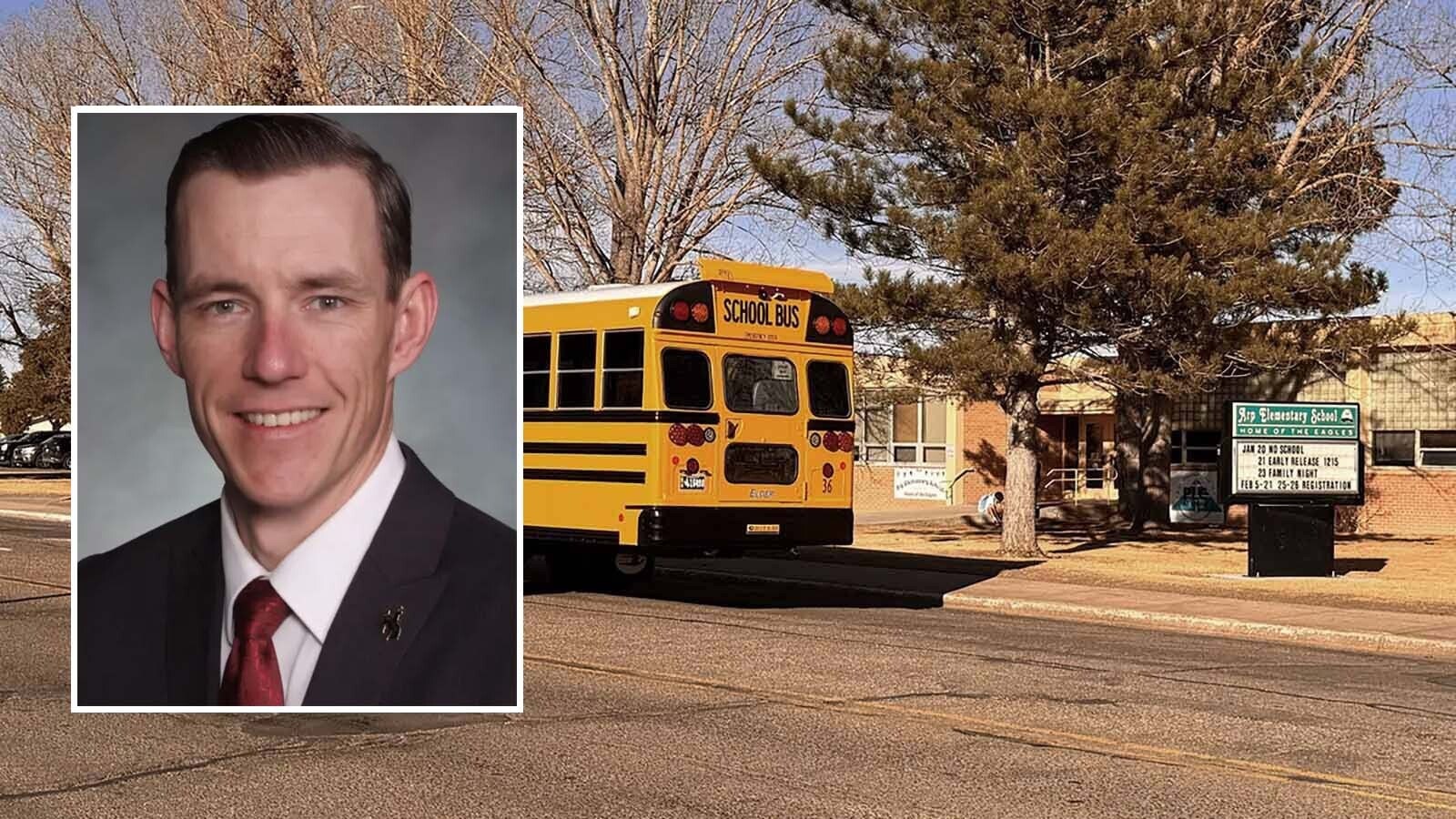The Wyoming Legislature may soon close a loophole in state law that says certain National Guard members who use deadly force to protect military equipment could potentially face murder or other criminal charges.
Chris Smith, a civilian senior legal advisor and lawyer for the Wyoming Military, said during a Joint Transportation Committee’s meeting on Tuesday that the issue has never come up during his 28 years in Wyoming, but he’d like to put some protections in place in case it does.
“I’d really hate for it to come up and someone be charged with murder,” he said. “Don’t know if it’d ever happen, but the state of the law is ambiguous and that bothers me as an attorney.”
TaLise Hansen, a staff attorney for the Wyoming Legislative Service Office (LSO), said Montana is the only state in the country that’s enacted this type of protection for its National Guard.
What The Law Says
Wyoming law does offer some protection in that no active member of the National Guard shall incur any personal liability, civil or criminal, for performing duties as required for their jobs.
Smith said this does not include 17 Wyoming Air National Guard security officers who are tasked with protecting assets such as the 153rd Airlift Wing’s C-130 aircraft and are considered state employees, and thus not protected if they act in self-defense of military property.
“They’re kind of out there hanging, that’s a problem,” Smith said.
Smith said his main concern would be at the Cheyenne Regional Airport, where the Wyoming Air National Guard keeps certain equipment and pays a lease, but it also could be relevant at Camp Guernsey about 98 miles north, where people also fly in for the military.
“At the airport it’s an issue if you use deadly force to protect the aircraft,” Smith said.
Wyoming has no statutory defense of property law in place to protect members of the National Guard working for the state who use deadly force to protect military property.
Smith said there could be times when these employees are faced with a situation where they have no choice but to immediately shoot a suspect on sight. He wants to protect these members, even if it’s discovered after the fact that lethal force may not have been necessary. In many situations, military members are instructed to shoot on sight if facing a certain level of risk.
But Smith said any potential law would not cover officers who fail to follow the duties of their jobs, such as murdering a fellow guardsmen.
Although these guardsmen do already have some protections, Smith said there could be certain scenarios, such as someone trying to steal equipment, where they aren’t facing a personal threat and would not be covered under the law.
Federal Vs. State
After the Sept. 11, 2001, attacks, federal requirements were changed to recognize that airplanes can be used as weapons. Federal law requires military security force members to use deadly force to protect prioritized military equipment.
Smith said although this extends to acts such as someone trying to take off with a Black Hawk helicopter, it does not cover other types of military property.
“You can protect people, yourself and others that are threatened with deadly force, but you don’t generally protect property,” he said.
The National Guard operates in one of three statuses: state active duty, Title 32 status, or Title 10 status. Normally, the Wyoming National Guard works under state active duty, paid for by the state and serving under the governor.
Under Title 10 status, the National Guard "is fully controlled by the federal government and integrated into the military,” a status usually only used during a national emergency. Under Title 32 status, the National Guard "is a state force funded by the federal government and utilized for operational support by either the federal or state governments."
When serving under the federal government in Title 10 or 32, the Department of Defense says that deadly force may be used by the National Guard, when reasonable, to prevent the actual theft or sabotage of assets vital to national security or inherently dangerous property and to prevent the sabotage or destruction of nationally-critical infrastructure, according to LSO. Smith said this does not cover events of guardsmen hijacking their own planes.
Wyoming on the other hand, has no general state-level law for defense of property. It does have a law allowing private company detention officers to use non-lethal force to prevent serious damage to property and deadly force to prevent the commission of a violent felony.
Smith noted however that the National Guard would not fit the definition of a private company detention officer or be entitled to the protection offered by this law.
State Rep. Ken Pendergraft, R-Sheridan, an Army veteran, questioned what types of equipment would and would not be covered under a potential new state law. Smith wouldn’t divulge much, but said the federal government designates which equipment are priority assets, and that the Wyoming National Guard has some ground-based items that fall into this priority category.
He said the Legislature will also have to consider whether it wants to permit deadly force to protect critical infrastructure, which is not considered a priority asset by the military.
“That’s a whole other ball of wax,” Smith said.
Rep. Landon Brown, R-Cheyenne, questioned whether the law would only extend to Wyoming guard members and not guard members from other states using the airport.
Smith said it depends whether a guard member is working within a federal status or not. If working for a state, they would fall under Wyoming law.
Might Already Be Covered
Although Wyoming does not have a general defense of property statute, the state Supreme Court has recognized several defenses when it comes to the protection of personal property. It’s unclear how or if these would apply to a member of the National Guard.
Sen. Brian Boner, R-Douglas, proposed using the language Montana used for its 2023 law, which Smith says he fully supports.
“That would make it extremely clear,” he said.
A draft bill will be considered at the committee’s next meeting in September.
Leo Wolfson can be reached at leo@cowboystatedaily.com.





